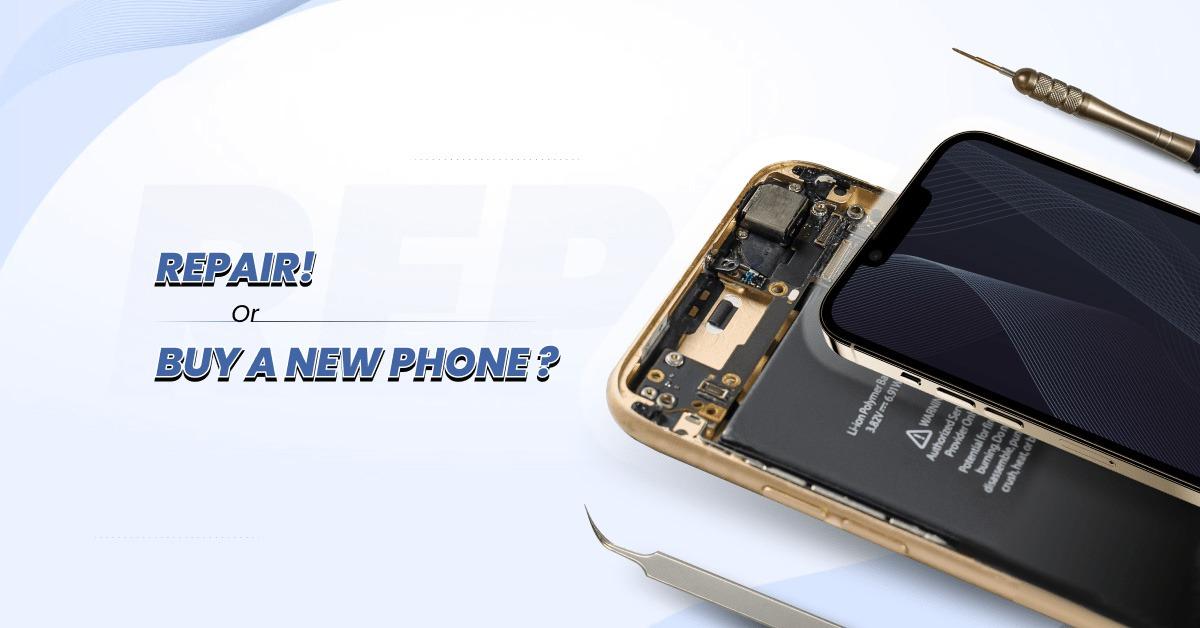Repair vs. Replace: When Is It Time for a New Phone?
In today’s fast-paced world, smartphones have become an integral part of our lives. We rely on them for communication, productivity, entertainment, and more. However, just like any other electronic device, smartphones have a limited lifespan, and they can experience issues over time. When your phone starts acting up or encounters problems, you face a critical decision: should you repair it or replace it with a new one? In this guide, we’ll explore scenarios in which it makes more sense to repair your phone and instances when it’s time to invest in a new device.
When to Repair Your Phone:
- Minor Cosmetic Damage: If your phone has minor cosmetic issues like scratches or a cracked screen, repairing it is often a cost-effective solution. Cosmetic repairs can make your device look and feel new again without breaking the bank.
- Battery Issues: Over time, smartphone batteries degrade, leading to reduced battery life and performance. Replacing the battery can extend your phone’s usability, especially if all other components are functioning well.
- Software Problems: Many software issues, such as app crashes, slow performance, or software glitches, can be resolved through updates, resets, or software repairs. These are relatively simple and affordable fixes.
- Budget Constraints: If you’re on a tight budget and your phone is repairable, it may be a wise financial decision to opt for repairs rather than investing in a brand-new device, which can be costly.
- Sentimental Value: Sometimes, a phone holds sentimental value. If it has personal data, photos, or memories you don’t want to lose, repairing it can be worth the investment.
When It’s Time for a New Phone:
- Hardware Failure: When critical hardware components like the motherboard, processor, or camera fail, repairing your phone can be expensive and may not guarantee a long-term solution. In such cases, it’s more practical to invest in a new device.
- Outdated Software and Features: If your phone is no longer receiving software updates, it may become vulnerable to security risks and lack compatibility with newer apps and features. Upgrading to a new phone ensures you have access to the latest technology.
- Repeated Repairs: If your phone requires frequent and costly repairs, it’s a sign that its overall health is deteriorating. Continuing to repair it can end up costing more than investing in a new, reliable device.
- Slow Performance: If your phone’s performance is consistently slow, even after software optimizations, it may be time to upgrade. Newer smartphones offer faster processors and improved performance.
- Network Compatibility: As network technologies evolve, older phones may not be compatible with newer networks, resulting in slower data speeds and reduced connectivity. Upgrading ensures you can take advantage of faster networks.
Conclusion:
Deciding whether to repair or replace your smartphone depends on various factors, including the severity of the issue, your budget, and your device’s overall condition. For minor problems or budget constraints, repairing your phone can extend its lifespan. However, when faced with major hardware failures, outdated software, or a series of costly repairs, investing in a new phone is often the more practical choice. Keep in mind your specific needs and priorities when making this important decision, and consult with professionals to help you weigh the pros and cons effectively. Ultimately, the goal is to have a reliable device that suits your needs and ensures a seamless mobile experience.












3 thoughts on “Repair vs. Replace: When Is It Time for a New Phone?”
Thank you for the brief information, this was really helpful.
Hi, There, what kind of a phone you’re looking for. We always have new phones coming.
i have read your blog and i am very happy to see the detail information you have posted online. this is very helpful.